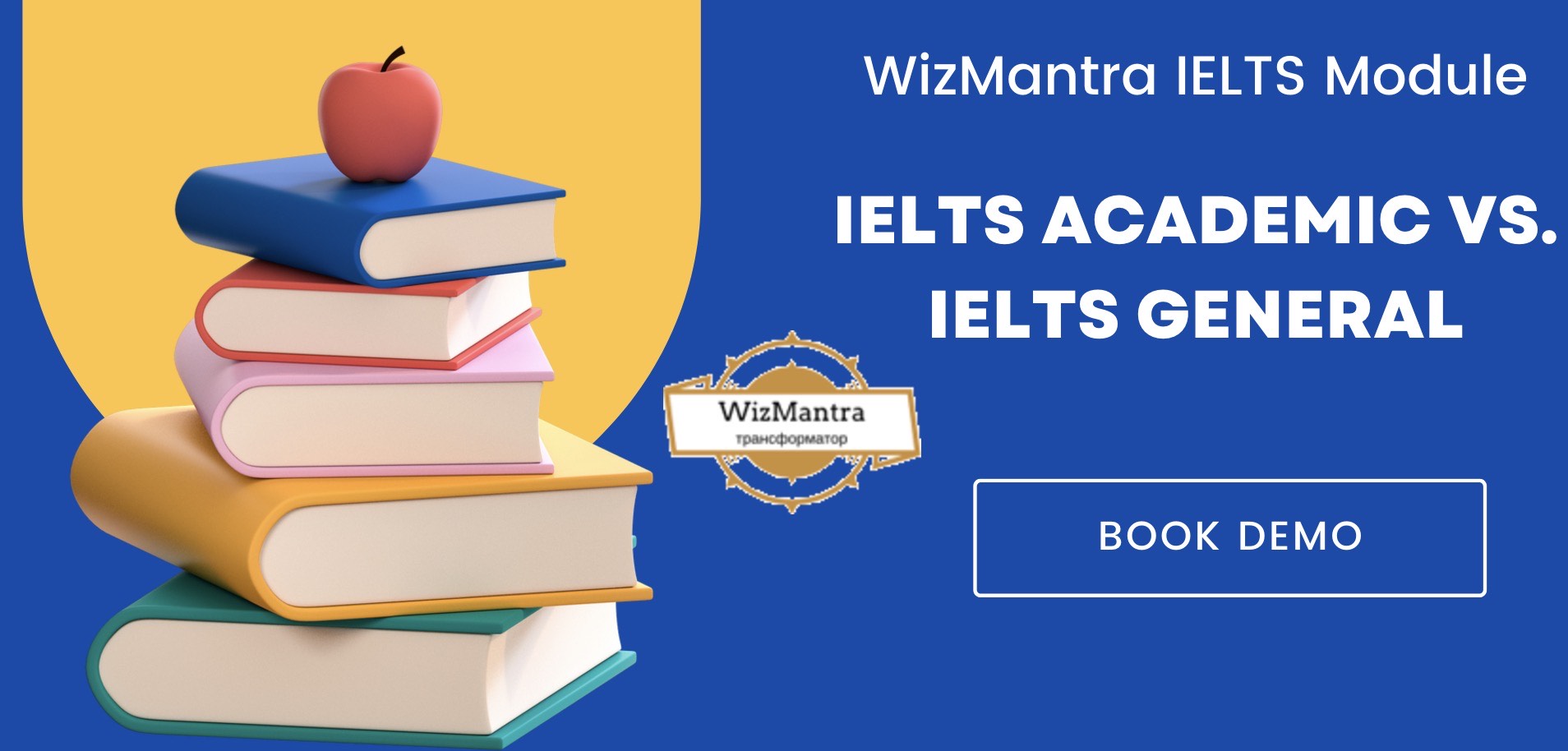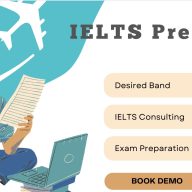IELTS Academic vs. IELTS General: Which One Should You Choose?
IELTS Academic vs. IELTS General: Which One Should You Choose?
The International English Language Testing System (IELTS) is a critical exam for anyone aiming to study, work, or settle in English-speaking countries. While the test’s purpose is to assess English language proficiency, understanding which version of IELTS to take—IELTS Academic or IELTS General Training—is crucial. Choosing the correct format depends on your goals, whether you’re pursuing higher education or applying for permanent residency.
In this comprehensive guide, we’ll break down the key differences, purposes, and structures of both versions. We’ll also share tips for preparation and provide valuable resources to help you make the right decision.
What is IELTS Academic?
IELTS Academic is designed for individuals who need to demonstrate their English proficiency for academic or professional registration purposes. It focuses on advanced language skills and academic English.
Who Should Take IELTS Academic?
- Students applying for undergraduate or postgraduate studies abroad.
- Professionals seeking licensing or registration in fields like medicine, engineering, and law.
- Individuals involved in research or academic projects.
Purpose of IELTS Academic
IELTS Academic evaluates your ability to handle complex academic language. It prepares you to succeed in university environments, including writing essays, analyzing data, and participating in discussions.
Learn more about IELTS Academic
What is IELTS General Training?
IELTS General Training measures your English skills in practical, everyday situations. It is designed for migration, work, or non-academic training purposes.
Who Should Take IELTS General Training?
- Individuals applying for permanent residency in countries like Canada, Australia, and New Zealand.
- Candidates seeking work opportunities in English-speaking nations.
- Students enrolling in vocational courses or short-term training programs.
Purpose of IELTS General Training
IELTS General Training focuses on basic communication skills required for daily interactions and workplace environments. It’s less academically intense and suitable for general life scenarios.
Explore IELTS General Training Details
Key Differences Between IELTS Academic and IELTS General Training
| Aspect | IELTS Academic | IELTS General Training |
|---|---|---|
| Purpose | Higher education and professional registration | Migration, work, and general training |
| Target Audience | Students, professionals, researchers | Migrants, employees, vocational trainees |
| Reading Section | Focus on academic texts like essays and journals | Focus on general texts like ads, notices, and guides |
| Writing Section | Formal essay and data interpretation (Task 1) | Letter writing and practical essays |
| Difficulty Level | Advanced academic English | Everyday English |
Both versions test your Listening and Speaking skills similarly, but they differ significantly in the Reading and Writing sections.
Detailed Comparison of IELTS Academic and General Training
1. Listening Section
The listening section is identical for both Academic and General Training formats. It includes four recordings, featuring conversations and monologues by native English speakers.
Key Features:
- Duration: 30 minutes (plus 10 minutes to transfer answers).
- Content:
- Section 1: Social conversation (e.g., booking a hotel).
- Section 2: Monologue on a familiar topic.
- Section 3: Group discussion in an academic setting.
- Section 4: Lecture or academic talk.
How to Prepare:
- Listen to English podcasts or radio shows, such as BBC Learning English or IELTS PrepCast.
- Practice with sample tests on platforms like IELTS Online.
2. Reading Section
The Reading section differs significantly between IELTS Academic and General Training.
IELTS Academic:
- Features three long passages from academic sources like journals, textbooks, or essays.
- Tests comprehension of complex language and ideas.
IELTS General Training:
- Includes texts from magazines, advertisements, and workplace notices.
- Focuses on practical and everyday English.
Preparation Tips:
- For Academic, focus on summarizing research articles and interpreting data.
- For General Training, practice skimming and scanning everyday texts.
Improve your reading skills here
3. Writing Section
The Writing section is a major area of divergence.
IELTS Academic:
- Task 1: Describe and interpret data presented in charts, graphs, or tables.
- Task 2: Write a formal essay on an academic topic.
IELTS General Training:
- Task 1: Write a letter based on a given situation (formal, semi-formal, or informal).
- Task 2: Write an essay on a general topic.
How to Prepare:
- Practice Task 1 writing with different types of data visuals.
- Familiarize yourself with essay structures for both Academic and General.
- Use tools like Grammarly to refine your grammar and sentence structure.
Master IELTS Writing with our Tips
4. Speaking Section
The Speaking section is the same for both versions and consists of three parts:
- Part 1: Introduction and general questions about yourself.
- Part 2: A 1–2 minute monologue on a given topic.
- Part 3: A discussion based on the Part 2 topic.
Preparation Tips:
- Record yourself answering mock questions to improve fluency.
- Practice with a tutor for real-time feedback.
- Use WizMantra’s personalized IELTS Speaking classes for expert guidance.
Scoring: IELTS Academic vs. General Training
Both tests use a band score system ranging from 0 to 9, with 9 representing expert proficiency. The scores are calculated based on your performance in Listening, Reading, Writing, and Speaking.
Band Score Requirements:
- Academic: Universities often require a minimum band score of 6.5 or higher.
- General: Migration authorities typically require a minimum band score of 6.0.
Which IELTS Exam Should You Choose?
For Higher Education
Choose IELTS Academic if you’re:
- Applying to universities for undergraduate or postgraduate programs.
- Seeking professional registration in fields like healthcare or engineering.
For Migration or Work
Choose IELTS General Training if you’re:
- Applying for permanent residency in countries like Canada or Australia.
- Enrolling in vocational courses or training programs.
Still Unsure?
Contact WizMantra’s experts for personalized advice based on your goals.
FAQs: IELTS Academic vs. General
1. Is IELTS Academic harder than General Training?
Yes, IELTS Academic is more challenging due to its complex reading passages and formal writing tasks.
2. Can I use IELTS Academic for migration?
In most cases, migration authorities require IELTS General Training. Verify the specific requirements for your application.
3. How can I prepare for the IELTS test?
- Take practice tests for your chosen version.
- Enroll in WizMantra’s IELTS preparation classes for tailored guidance.
Why Choose WizMantra for IELTS Preparation?
At WizMantra, we specialize in online IELTS classes for both Academic and General Training formats. Our courses include:
- Personalized coaching to address your weaknesses.
- Mock tests to simulate real exam conditions.
- Access to a wealth of study materials, including practice papers and vocabulary lists.
- Flexible scheduling to suit your routine.
Join WizMantra’s IELTS Courses Today








Leave a comment